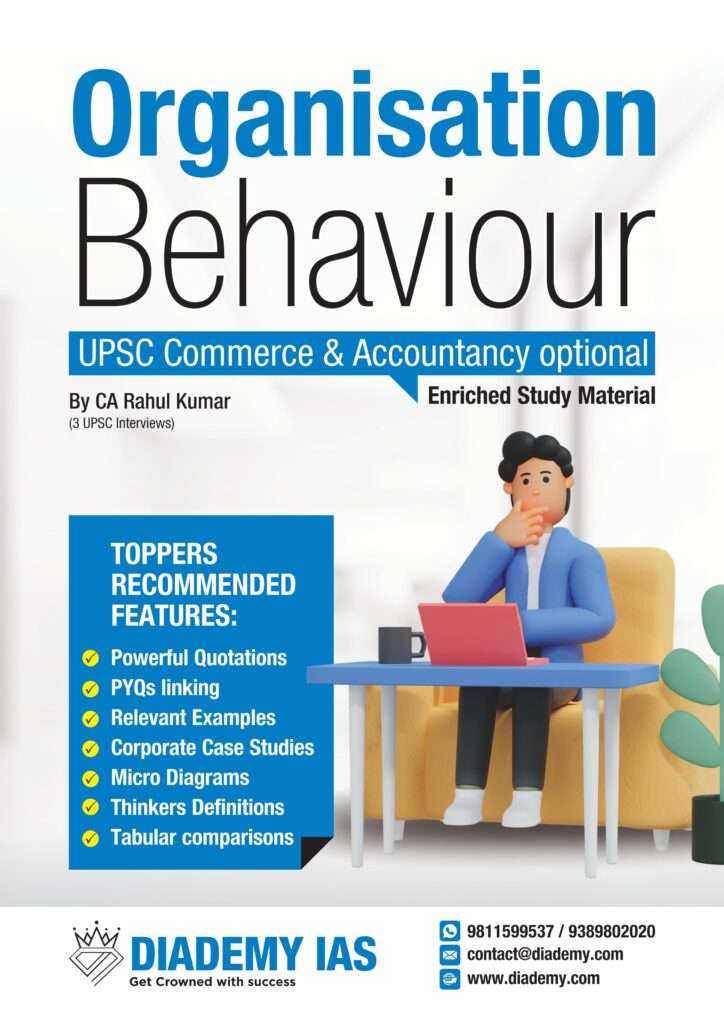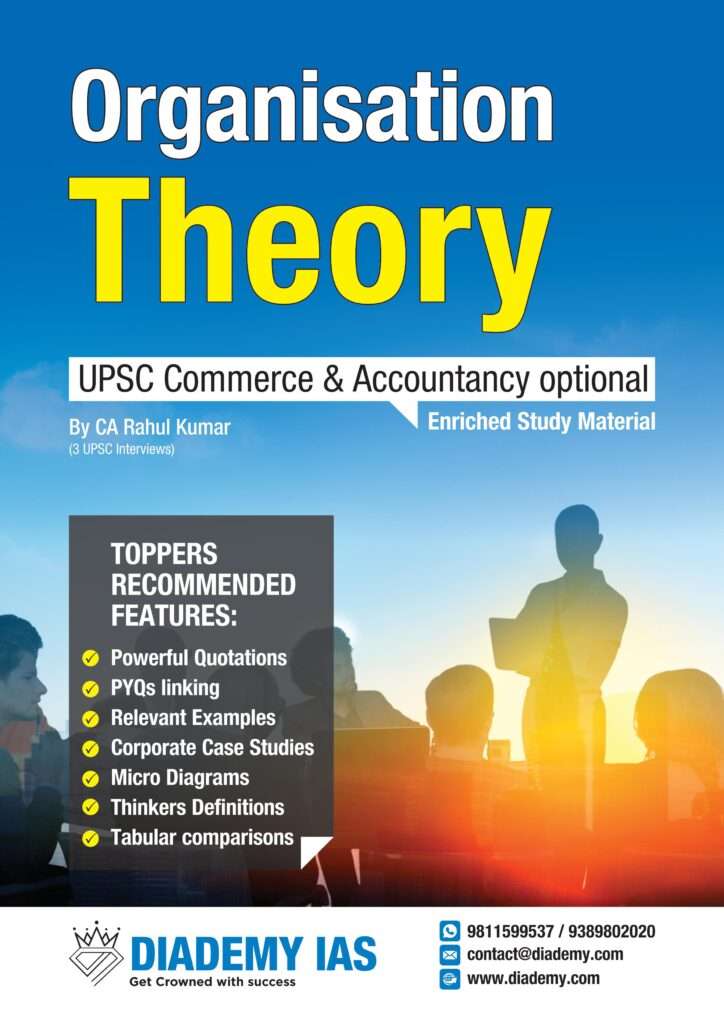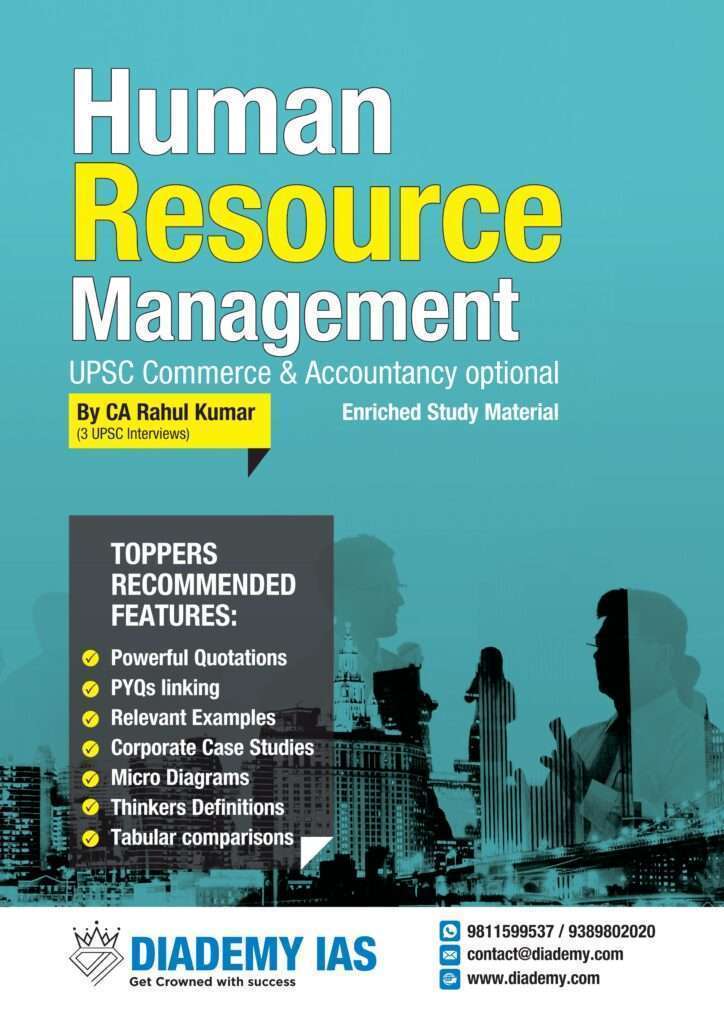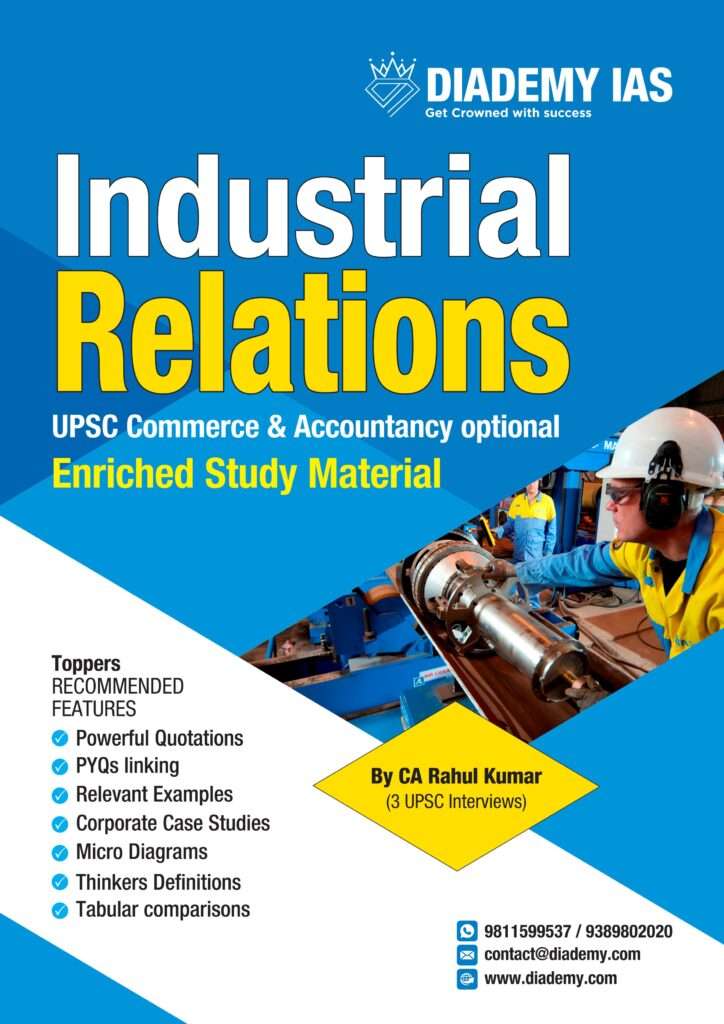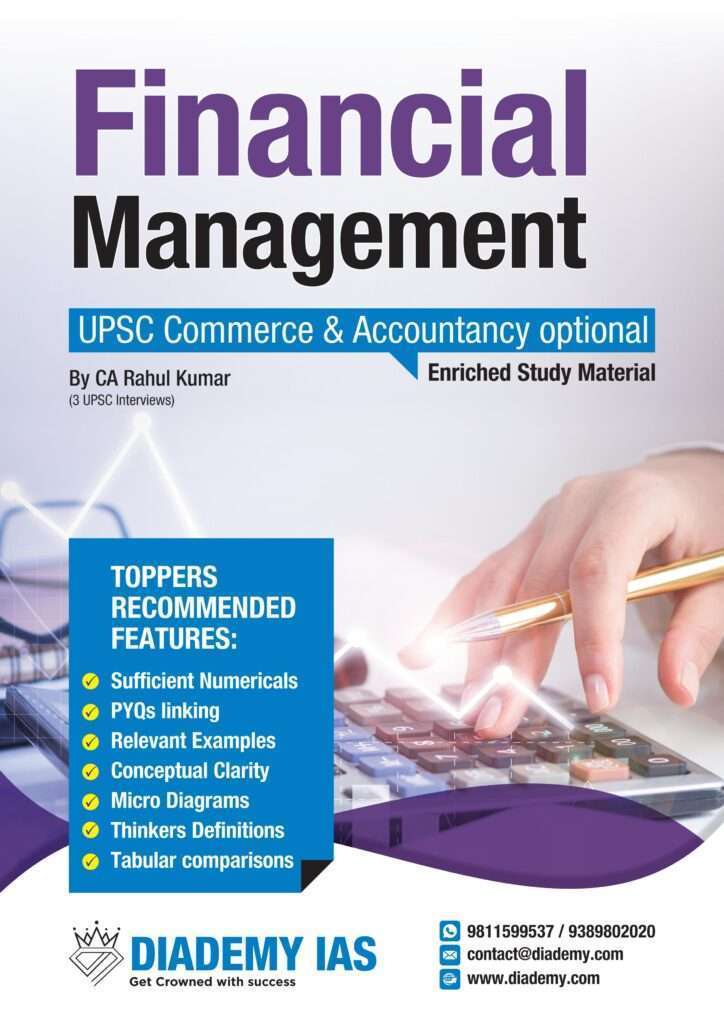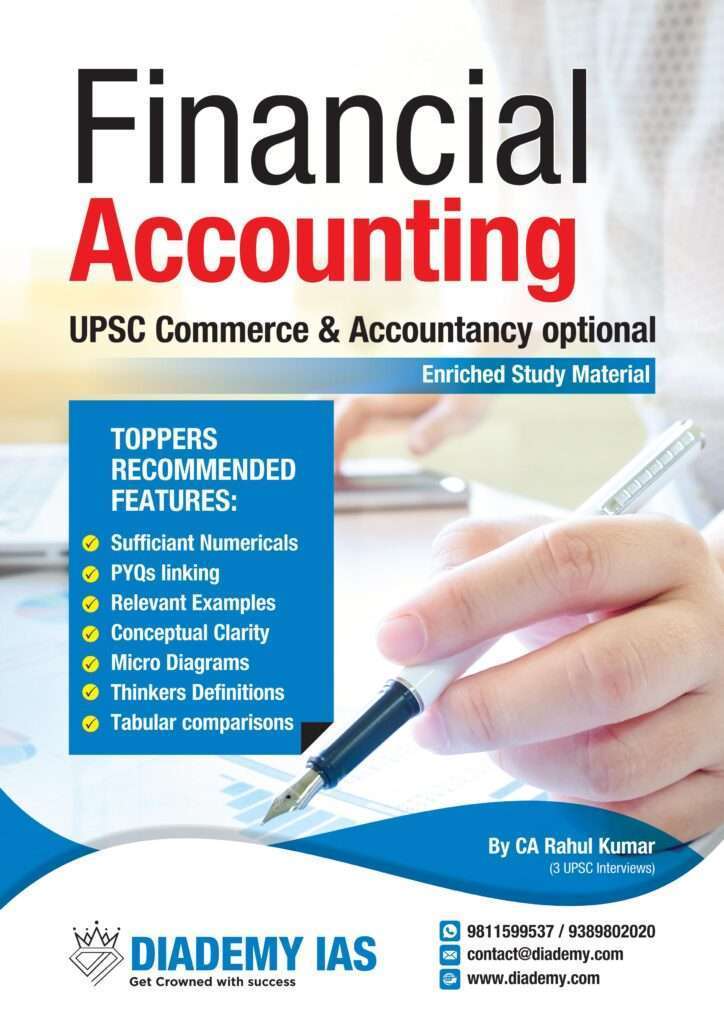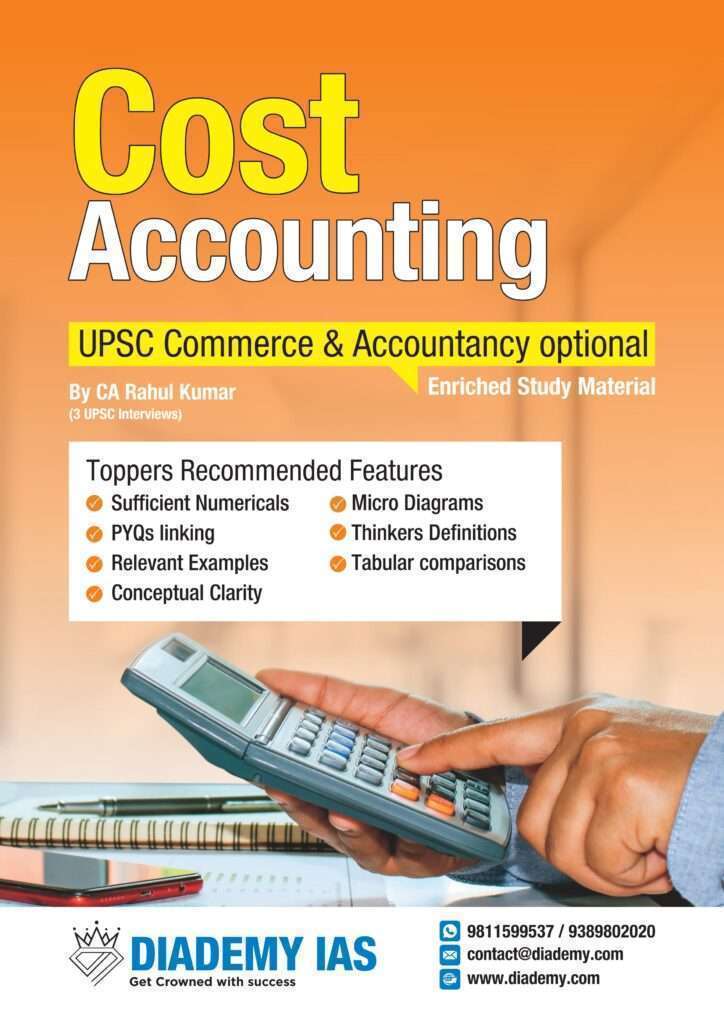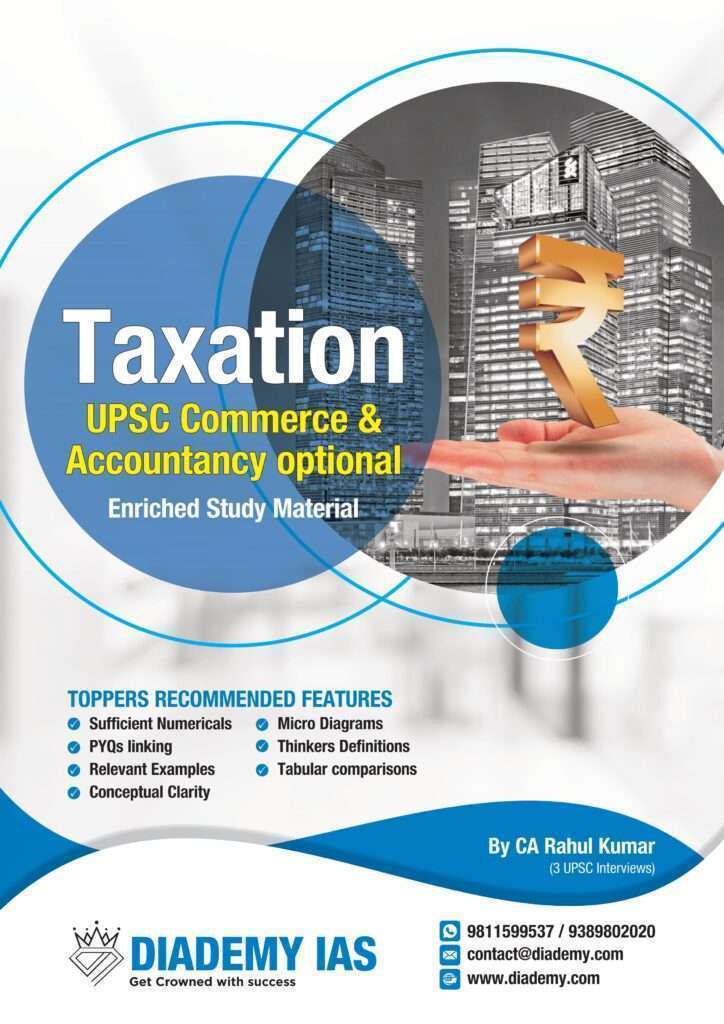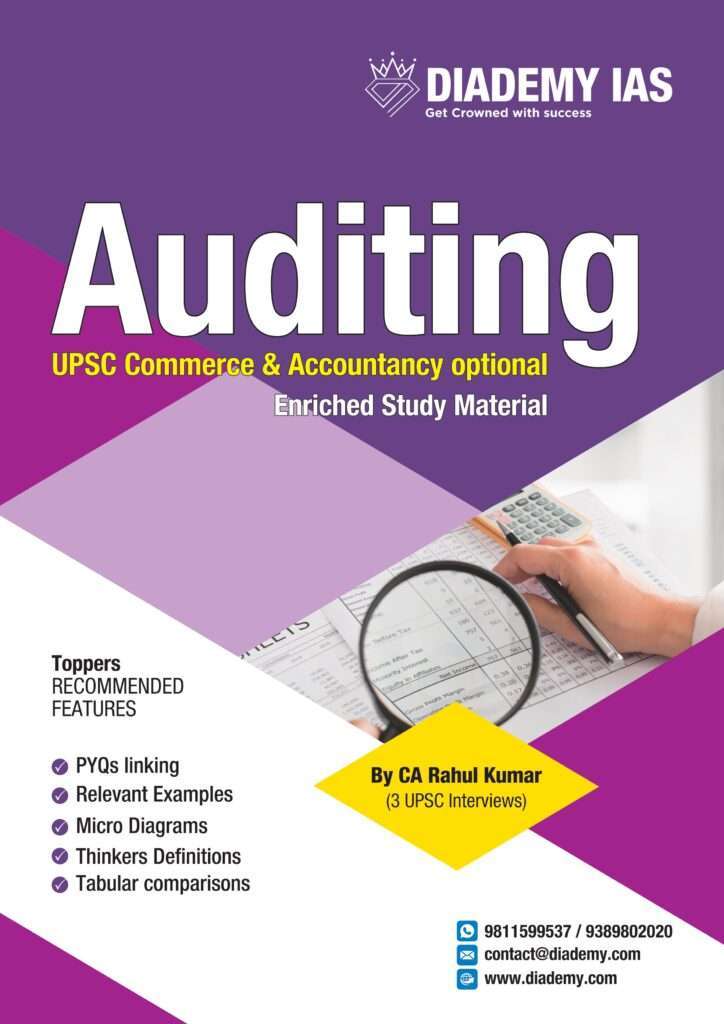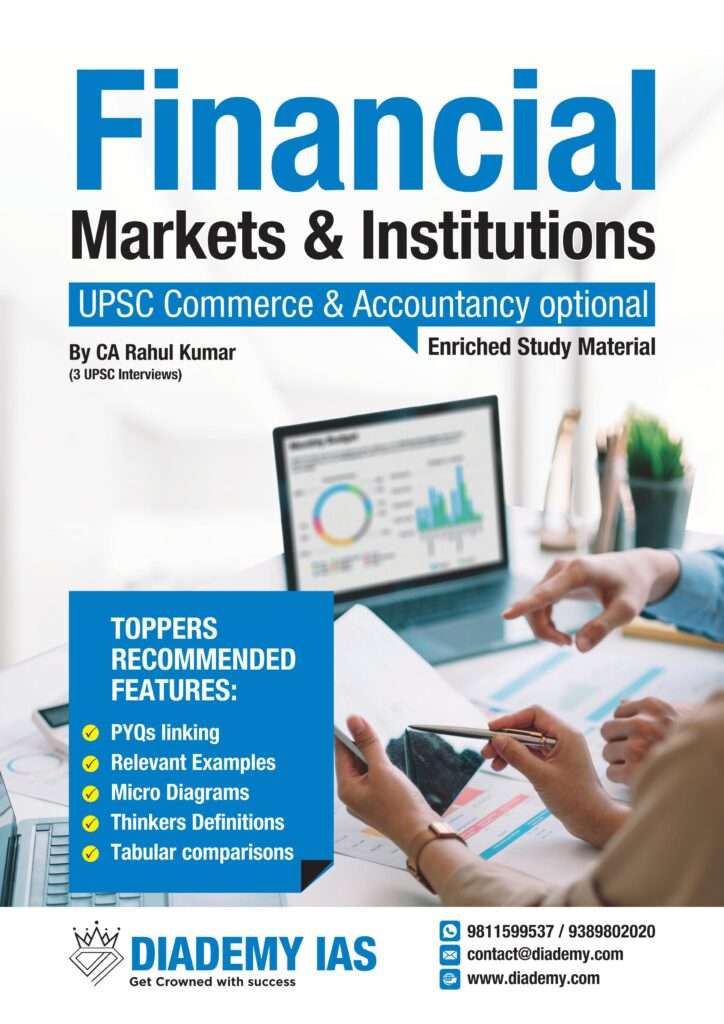Commerce and Accountancy Optional for UPSC (Offline & Online)
Commerce and Accountancy for UPSC (Commerce & Accountancy Optional for UPSC): Commerce and Accountancy is an optional subject for the Union Public Service Commission (UPSC) exam. It covers a wide range of topics, including financial accounting, auditing, financial management, tax accounting. We cover both papers (Paper 1 & Paper 2) for UPSC CSE Mains in depth, along with PYQ session, Commerce answer writing solution session.
Unlock your full potential in Commerce and Accountancy Optional with Diademy IAS comprehensive range of courses designed to elevate your preparation to new heights. Our meticulously structured offerings include the Classroom Foundation Course (Offline & Online), providing a solid base in core concepts through dynamic in-person learning. For those seeking a more personalized approach, our Mentorship cum Test Series Course combines expert guidance with rigorous practice, ensuring you’re exam-ready. Dive deeper with our Enriched Study Material, curated to enhance understanding and retention of complex topics. And, perfect your strategy with our PYQ (Previous Year Questions) Discussion Class, where you’ll dissect and learn from past exams. Whether you prefer the immersive experience of offline coaching or the flexibility of online coaching, Diademy IAS is here to guide you every step of the way towards achieving excellence in your academic and professional journey.
In addition to comprehensive course coverage, we place a significant emphasis on practical application and exam readiness. Furthermore, our unique Commerce answer writing coaching class is dedicated to enhancing answer presentation skills, a critical component for securing high marks in the UPSC Mains. At Diademy IAS, we are committed to equipping our students with not just the knowledge but also the strategies and skills necessary to excel in the UPSC exam and beyond. We are one of the best Commerce and Accountacy optional coaching institute in Delhi located at Old Rajinder Nagar.
For enquiry call at 9811599537.
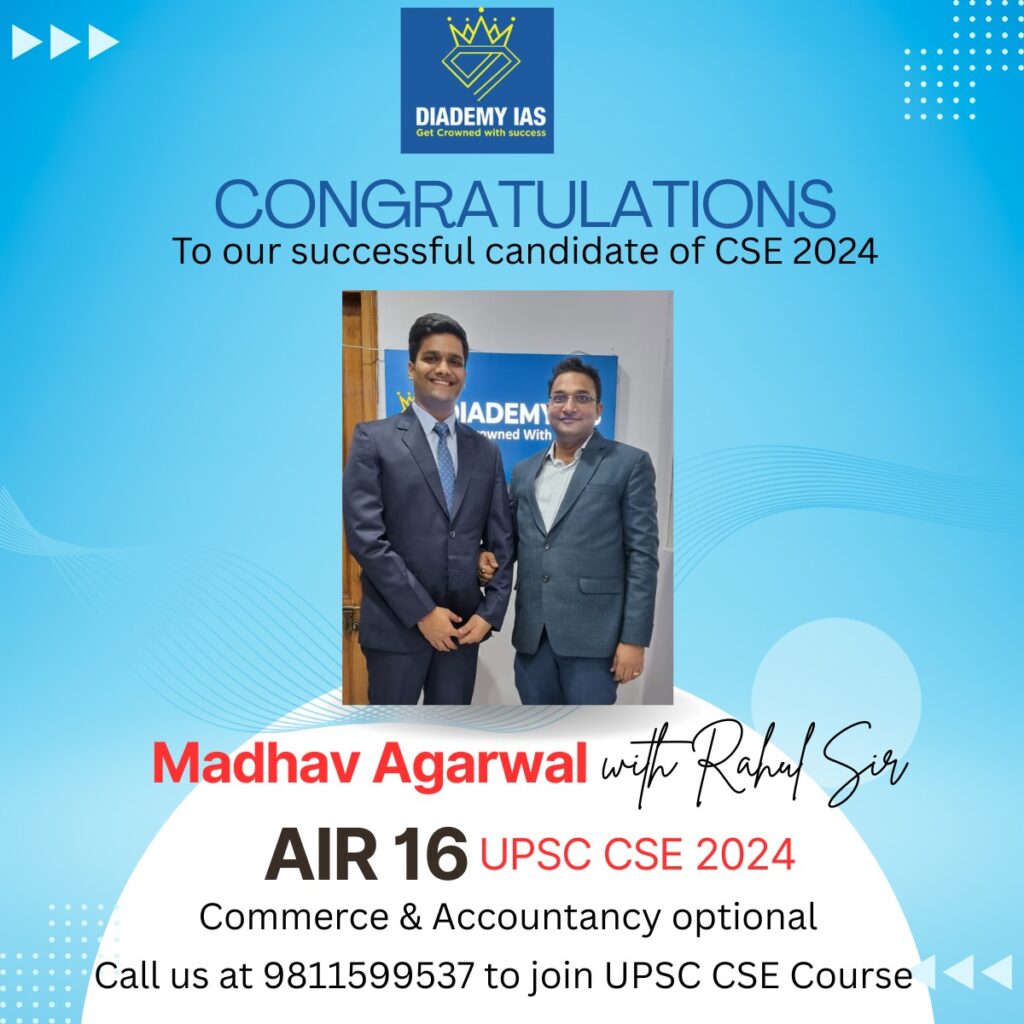
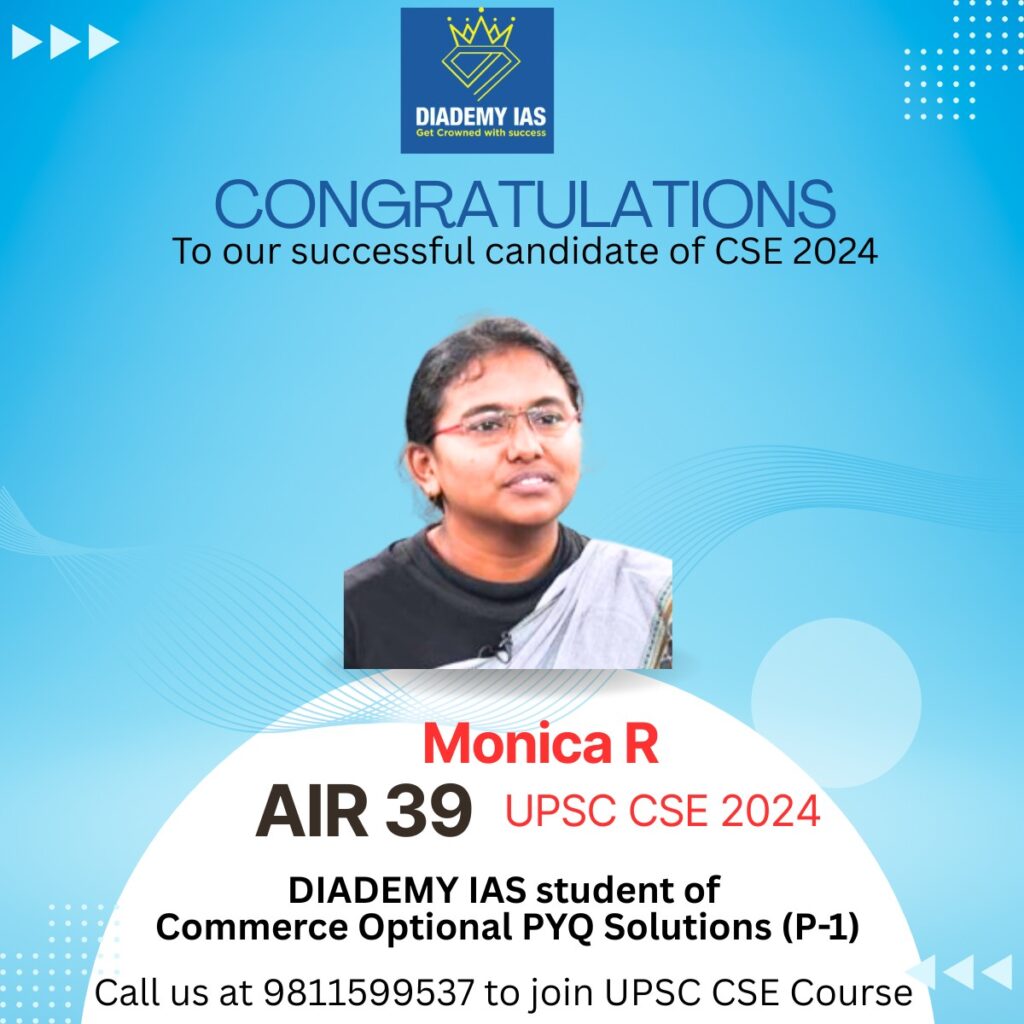
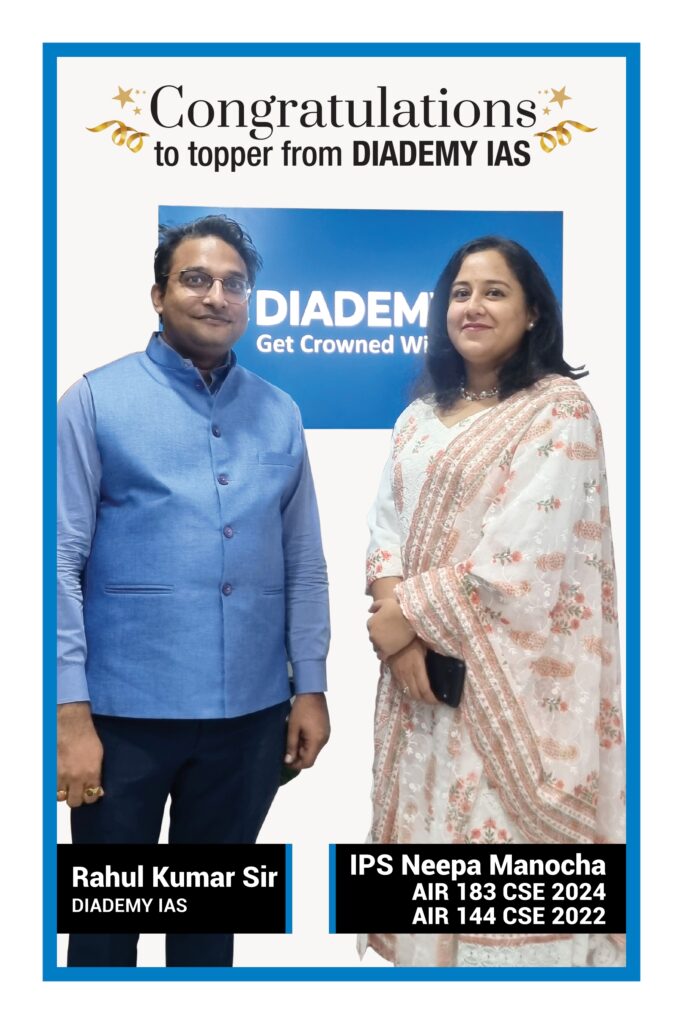
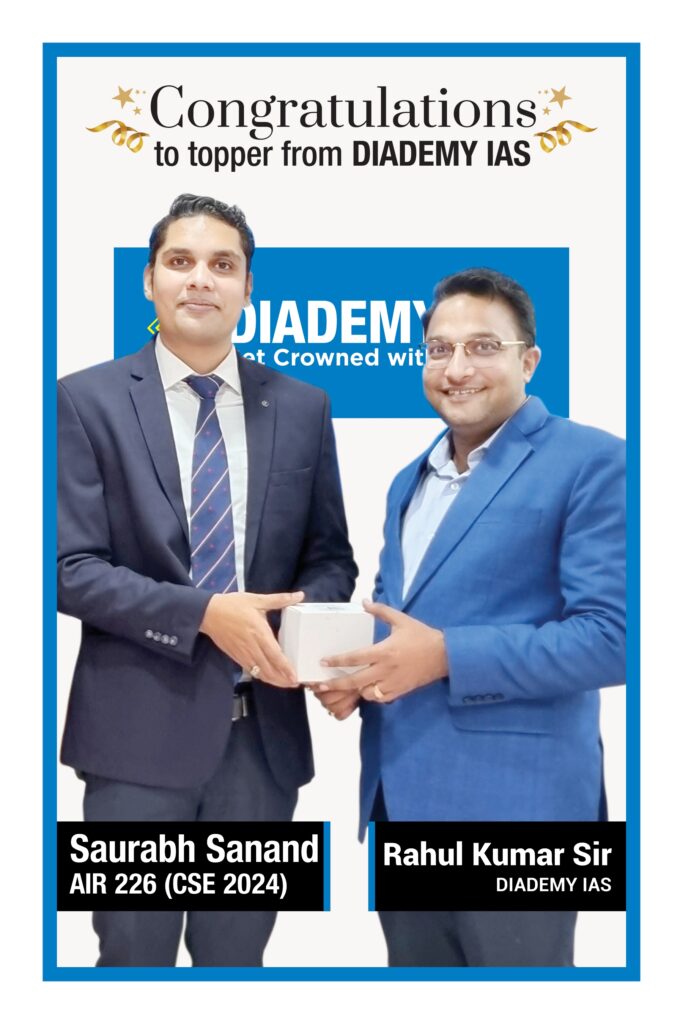

IRS Shivang Rastogi
Rank 307 UPSC 2022
Get Free Counselling for UPSC Commerce Optional Course
Courses for UPSC Commerce Optional (Offline/ Online)
PYQ Discussion Classes
Commerce & Accountancy Optional for UPSC
by CA Rahul Kumar
UPSC Commerce & Accountancy Optional Course (Online & Offline) Description
Classroom Foundation Course Features:
Program duration: 6 Months
- 5-6 Classes a week
- Each Classes of 2-2.5 hours of duration
Features of Commerce & Accountancy Optional Classroom Foundation Course:
- Hardcopy Study Materials
- Hardcopy PYQ Solutions
- Hardcopy Revision Short Notes
- No need to approach for any other materials
- 23 Weeks of Daily Answer Writing
- 10 Sectional Tests
- 4 Full Length Tests (2 From Each Paper)
- Timely Evaluation of Answers written
- Weekly dedicated Mentorship Session
- Offline (Delhi) & Online Live Classes
Online Advanced Course Features:
Program duration: 5.5 Months
Target - CAs/CS/CMAs/MBA/Well studies graduates
- 3 Classes a week
- Each Classes of 2-2.5 hours of duration
- Class time is evening (helpful for working professionals)
Features of Online Commerce & Accountancy Optional Classroom Advanced Course:
- Study Materials
- Printed PYQ Solutions
- Revision Short Notes
- No need to approach for any other materials
- 23 Weeks of Daily Answer Writing
- 10 Sectional Tests
- 4 Full Length Tests (2 From Each Paper)
- Timely Evaluation of Answers written
- Weekly dedicated Mentorship Session
Mentorship cum Test Series Course Feature:
3 Phased Commerce and Accountancy Optional Mentorship cum Test Series Program:
- Phase 1: Daily Answers (23 Weeks)
- Phase 2: Subject-wise tests (2 Months)
- Phase 3: Full-length Mock tests (1 Month)
Features:
- Daily schedule with micro topics target
- Customized targets based on the individual status of preparation.
- Weekly Mentorship calls
- Personal tracking sheet
- Target 3 months for each paper
- Exam-oriented UPSC pattern questions
- Flexibility to write Answers as per your timings
Commerce optional Mains 2025 test series
A) TEST FEATURES
- Three level tests
- Pre test orientation
- Highly probable questions
- Best quality model answers with video discussion of selected questions
- Live evaluation of initial 2-3 tests in front of the group
- Detailed Evaluation will focus on addressing the gaps and suggesting the actionable improvements for marks enhancement
- Past years toppers copies analysis for learning best practices
B) EXAM ORIENTED AUGUMENTED CONTENT
- Complimentary PYQ Discussion 20 Hrs videos of Paper 2 by IRS Shivang Rastogi
- Value Additions
- Current affairs compilation
C) Harnessing Group energy and one to one support of Rahul Sir
- Personal contact number of Rahul sir for query resolution
- Dedicated closed telegram channel
- Need based Individual Meetings and Group huddles (Offline Center/Zoom
- Sessions by previous optional toppers for experience sharing
Commerce Optional PYQ Solution Discussion by IRS Shivang Rastogi (AIR 307, CSE 2022)
Commerce Optional PYQ Solution (Paper-2 Exclusive)
- Repeated themes of last 10 years will be brainstormed & discussed in class
- PYQ Workbook based unique approach
- Printed solutions of last 10 years of paper 2
- New Value Additions will be provided
- Total 20 Video recorded classes
- Available in online recorded formats
- PYQ based Mini Tests with evaluation
Commerce Optional Classroom Foundation Course Online & Offline
Course Features
5-6 Interactive Classes per Week
3 Phased Test Series
6 Months Duration
Current Affairs & PYQ Discussion
Paper 1 & 2 Covered
Individual Mentoring
Printed Study Material
Offline & Online
Special Features
Printed solution of Previous Year Questions (PYQs)
Printed solution of Previous Year Questions (PYQs)
Additional Features
Special training on Answer Writing Tips
Learn Introduction, Body, Conclusion
Value Additions
Daily Answers
Subject wise Tests
Full mocks tests
UPSC Pattern Questions
Evaluation
Model Answers
Flexibility timings
Commerce & Accountancy Optional Coaching for UPSC
Rahul Kumar (cleared UPSC Indian Cost Accounting Service 2016)
Rahul Kumar, a distinguished Chartered Accountant (CA) of the 2009 batch, got success in the prestigious UPSC exam for the Indian Cost Accounting Service (Reserve Panel) in 2016. He got trained in Management Development Programme from the National Institute of Financial Management (NIFM), Faridabad, a public institution aimed at training officers recruited by the Union Public Service Commission (UPSC) for various finance and accounts services.
Hs is an expert in UPSC Commerce and Accountancy. He scored topmost marks in the UPSC Commerce optional and cleared UPSC IAS Mains 3 times and appeared 3 times in UPSC IAS Interviews. Many of his students have also scored top scores in Commerce optional. More than 100 UPSC IAS toppers have qualified under his guidance.
Demonstrating his commitment to continuous professional development, he has been selected as a candidate for Executive Programme in General Management at the Indian Institute of Management (IIM) Calcutta, elevating his indepth knowledge into the Management and Finance subjects
His contribution to the UPSC GS Indian Economy book has been acknowledged by IAS Nitin Singhania Sir (Prestigious author of MCGraw hill books). Notably, he had the privilege of guiding the All India Rank 1 (IAS Aditya Srivastsva) topper in the UPSC Civil Services Examination 2023. He is a notable speaker at the seminars organised by The institute of Chartered Accountants of India (ICAI) and various IIM’s for civil services aspirants.
His early professional journey includes 8 years of service in Central PSUs, including Indian Railways Catering & Tourism Corporation Ltd (IRCTC) and NTPC Ltd, where he held various financial and managerial positions.
Currently, he serves as a senior faculty at DIADEMY IAS in Old Rajinder Nagar, Delhi, specializing in Commerce & Accountancy and Management Optional subjects through classes and mentorship programs. He is also a visitor faculty at many prominient Civil services institutes for GS Economy.
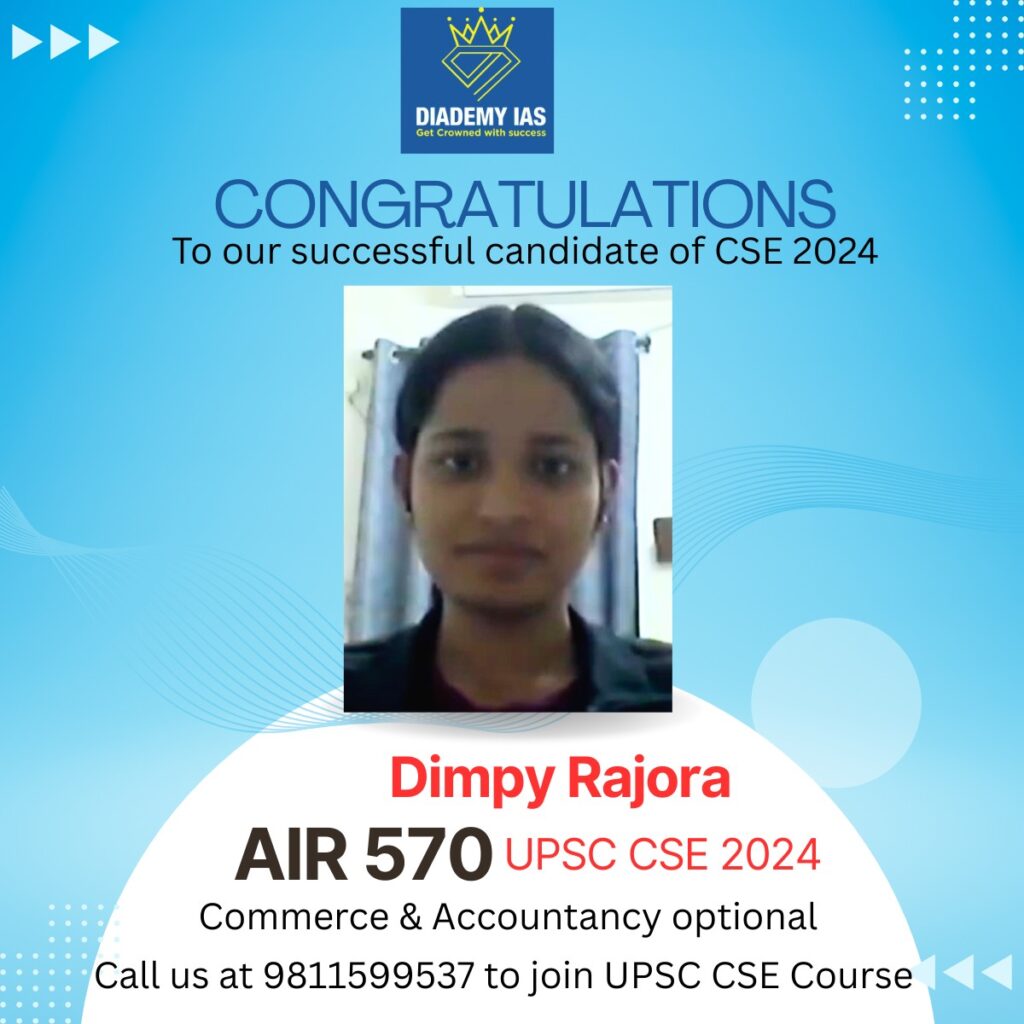

Commerce Optional PYQ Solutions & Questions Banks
Improve your exam preparedness with PYQ Solutions & Questions Banks. Access previous year’s question solutions and curated question banks for comprehensive practice. Maximize your chances of success in exams.
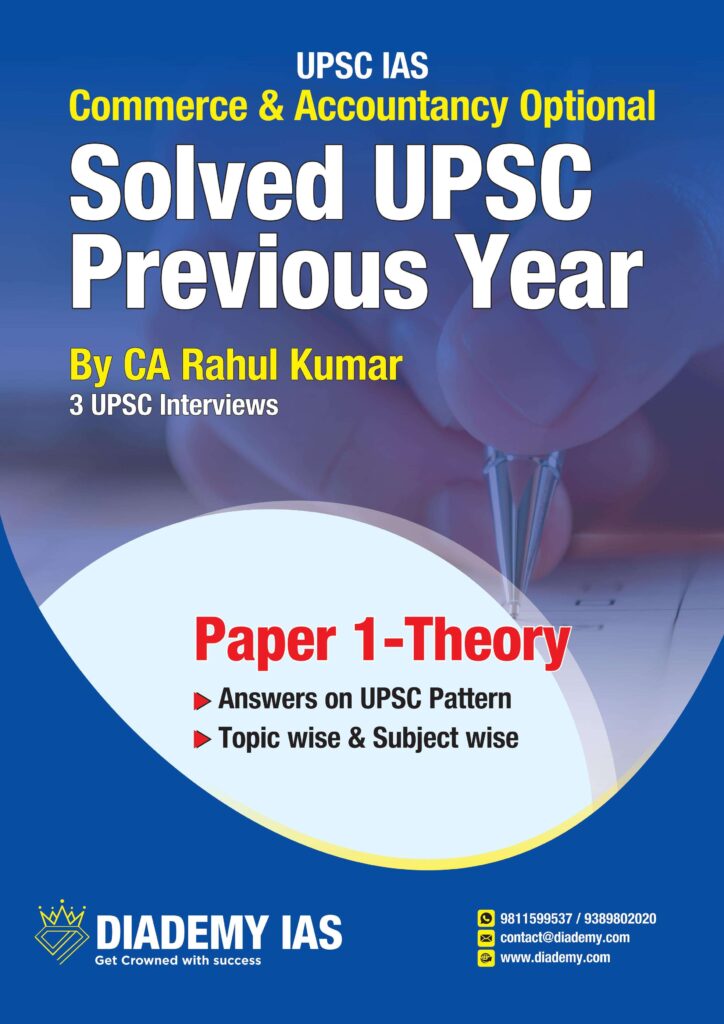
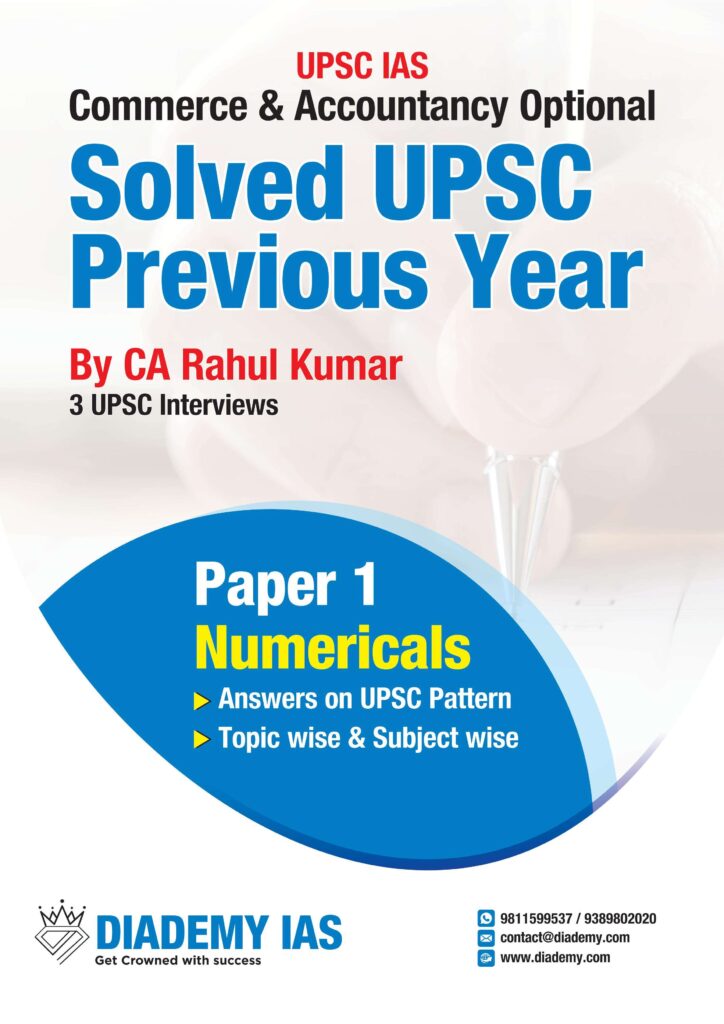
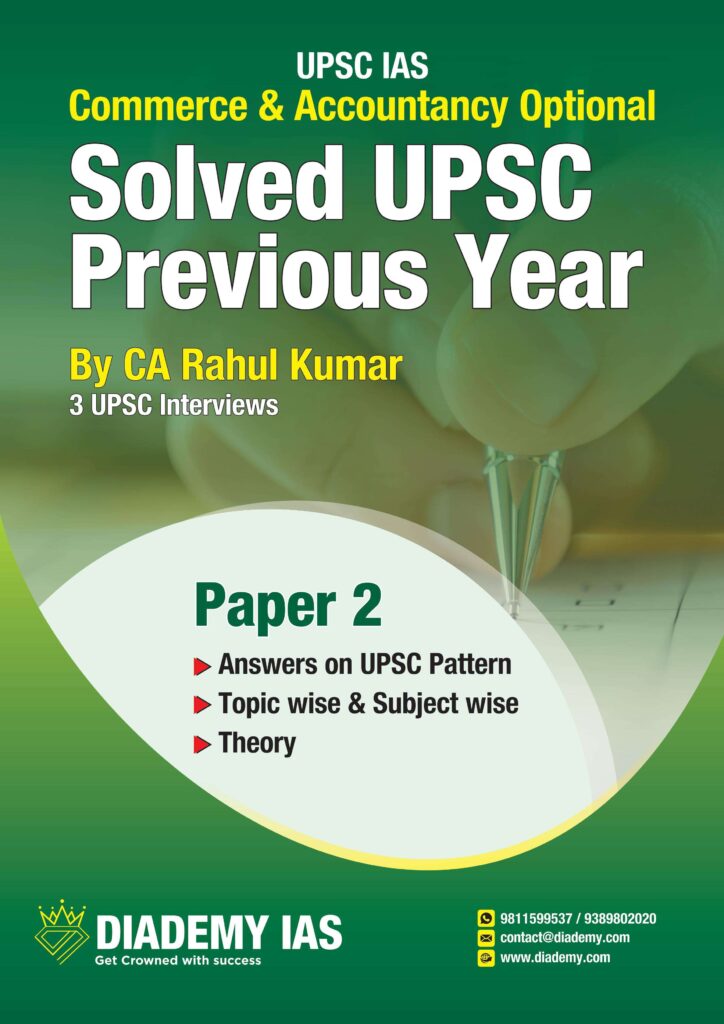
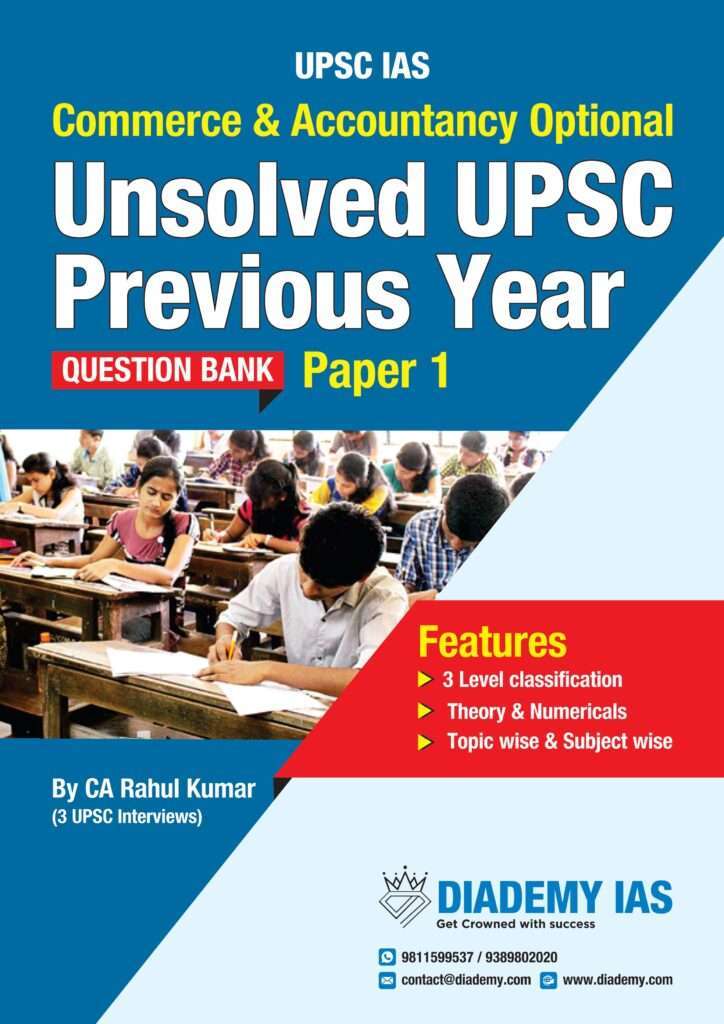
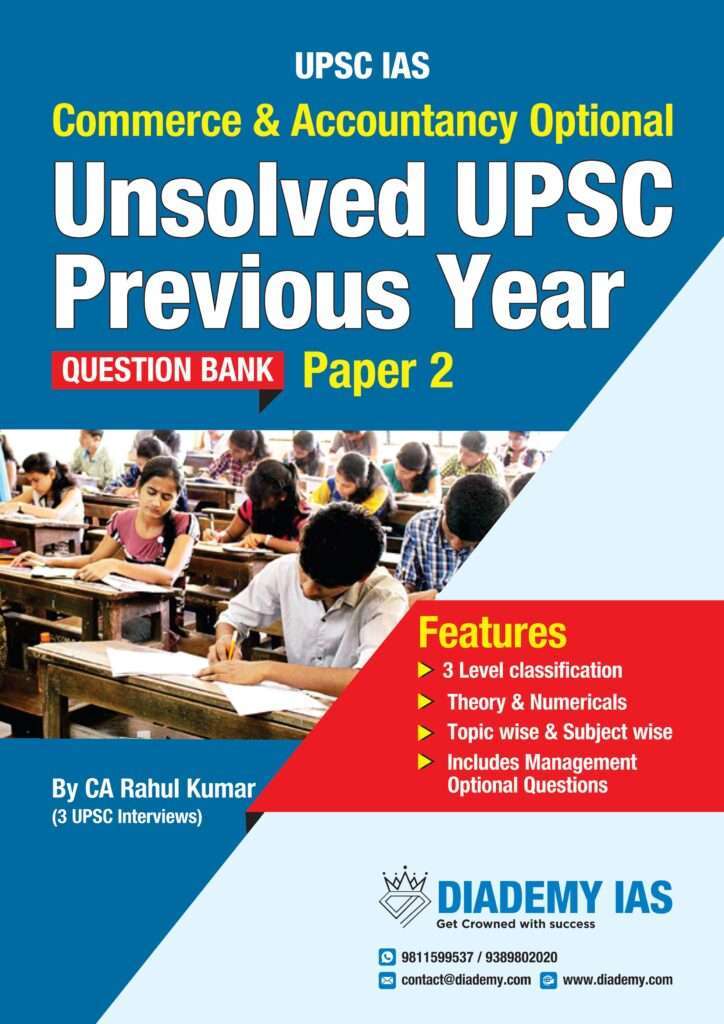
UPSC Mains Test Series 2026 Focused on Mains 26 Appearing Students
UPSC Commerce & Accountancy Optional
By CA Rahul Kumar
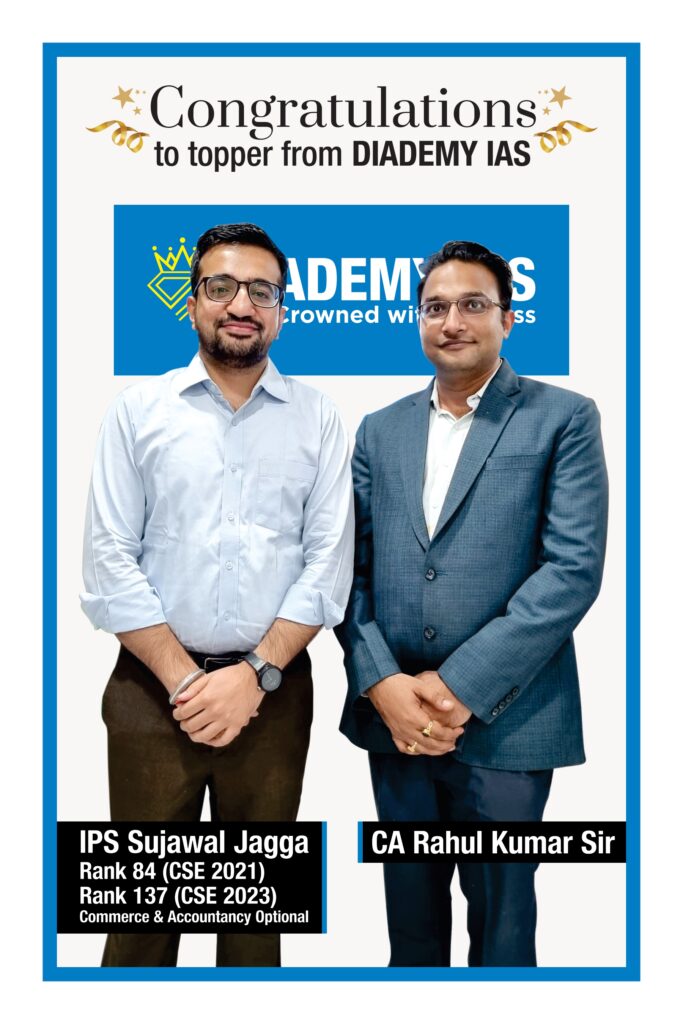
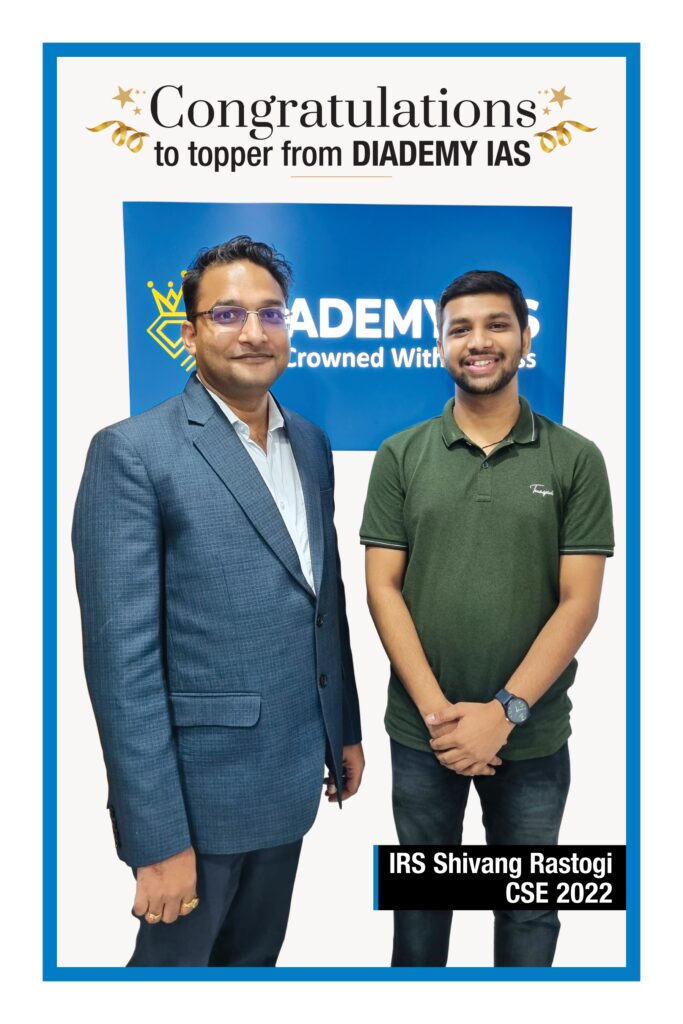
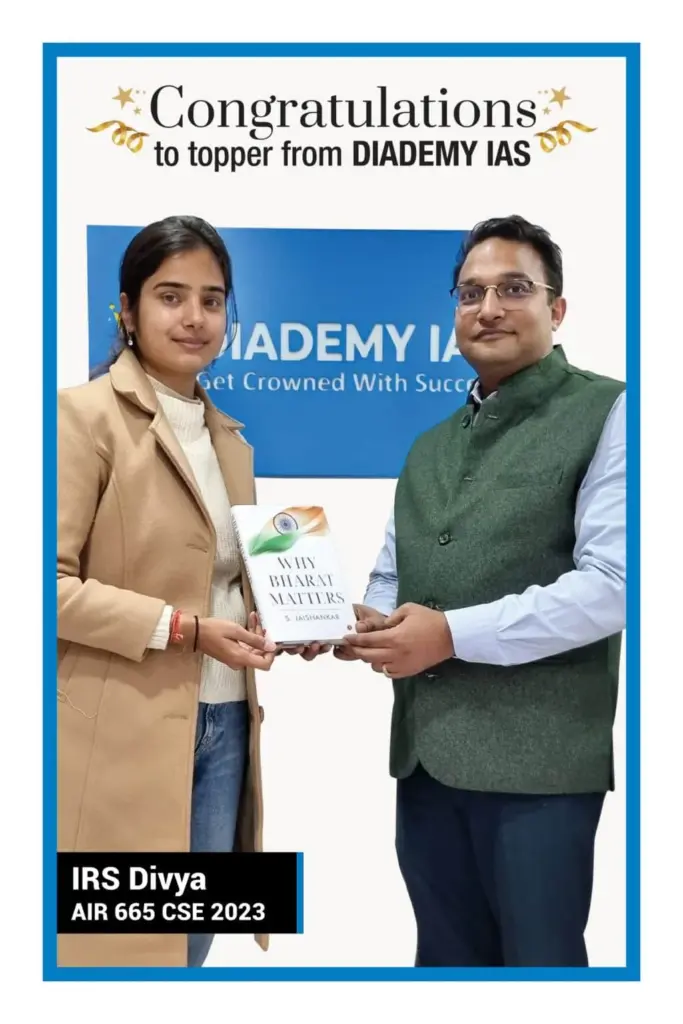
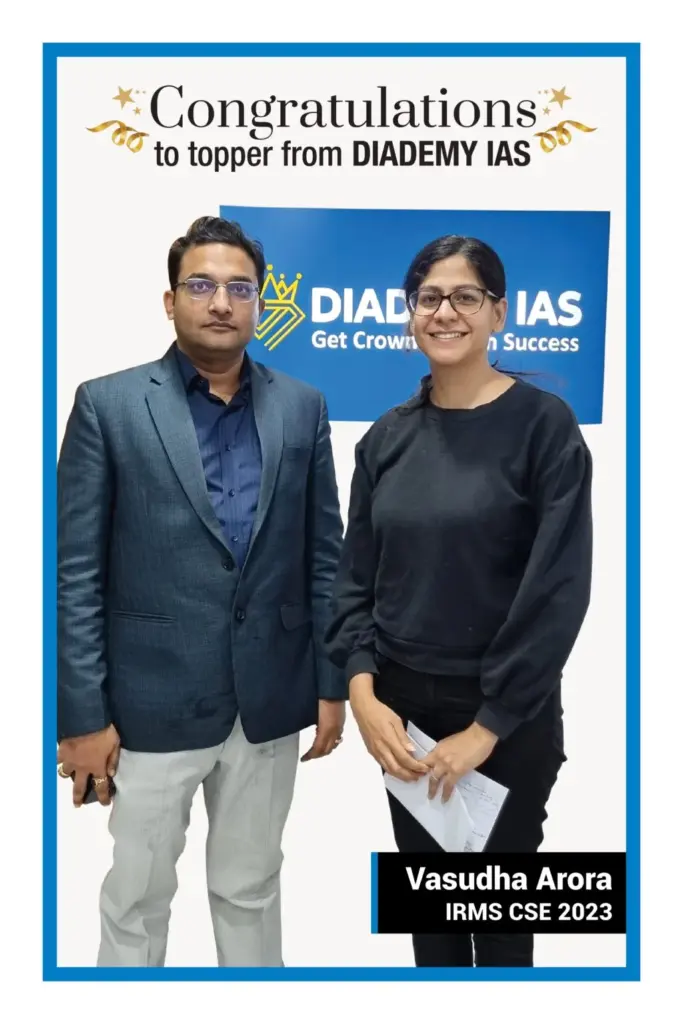

Our Commerce Optional's Study Materials
Explore Our Commerce Optional’ s Study Materials: Diademy IAS published 10+ Commerce & accountancy books for UPSC CSE. A comprehensive collection of recommended books for Commerce optional subjects in the UPSC examination. Boost your preparation with trusted resources and excel in Commerce and Accountancy with this curated list.
